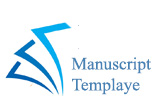Knowledge Transfer for Institution and Human Resources Empowerment to Develop Ecotourism in Pasir Mendit, Jangkaran Village, Temon District, Kulon Progo Regency
Abstract
The research aims to develop Wana Tirta Pasir Mendit ecotourism, Jangkaran Village, Temon District, Kulon Progo Regency. Knowledge transfer has been used in developing institutions and human resources empowerment. Digital marketing can be used to promote Wana Tirta Pasir Mendit ecotourism through the creation of a website, social media content, and optimization of Google Maps. Therefore, the involvement of local youth in the development of the Wana Tirta Pasir Mendit ecotourism project can contribute to the improvement of human resources capacity and attract tourists through youth empowerment, capacity development, introduction to local culture, and the development of tourism products. To increase the capacity of human resources and draw tourists to Wana Tirta Pasir Mendit ecotourism through digital promotion, local youth involvement in the project's development is crucial. To measure the effectiveness of knowledge transfer in empowering institutions and human resources, several methods had been used, including competency evaluation, and performance assessment. The study found that knowledge transfer is effective in empowering institutions and human resources of Wana Tirta Pasir Mendit ecotourism.
Full Text:
PDFReferences
Chiutsi, S., Karigambe, P., & Mudzengi, B. K. (2011). The theory and practice of ecotourism in Southern Africa. Journal of Hospitality Management and Tourism, 2(2), 14–21. https://academicjournals.org/journal/JHMT/article-abstract/20AD3C42496
Denzin, N. K. (2008). The sage encyclopedia of qualitative research methods. In L. M. Given (Ed.), The SAGE Encyclopedia of Qualitative Research methods. SAGE Publications.
Dimitriou, C. K. (2017). From theory to practice of ecotourism: major obstacles that stand in the way and best practices that lead to success. European Journal of Tourism, Hospitality and Recreation, 8(1), 26–37. https://doi.org/10.1515/ejthr-2017-0004
East, J. F. (2016). Empowerment theory. In N. Coady & P. Lehmann (Eds.), Theoretical perspectives for direct social work practice, 3rd Edition. Springer Publishing Connect. https://doi.org/10.1891/9780826119483.0017
Fennell, D. A. (1999). Ecotourism : an introduction. Routledge.
Global Ecotourism Network. (2016). What is (not) ecotourism. https://www.globalecotourismnetwork.org/what-it-is-not-ecotourism/
Head of Publication Service OECD. (1996). The knowledge-based economy. In General Distribution OCDE. https://doi.org/10.1177/03946320040170s208
Larkin, M. E., Cierpial, C. L., Stack, J. M., Morrison, V. J., & Catherine A. Griffith. (2008). Empowerment theory in action: the wisdom of collaborative governance. The Online Journal of Issues in Nursing, 13(2). https://doi.org/10.3912/OJIN.Vol13No02PPT03
Nokes, T. J. (2004). Testing Three Theories of Knowledge Transfer. Proceedings of the Twenty-Sixth Annual Conference of the Cognitive Science Society, January, 1029–1034. https://escholarship.org/content/qt0f80k6p0/qt0f80k6p0.pdf
Nonaka, I., & Takeuchi, H. (1995). The knowledge-creating company: how japanese companies create the dynamics of innovation. Oxford University Press.
Prasetya, J. D., Maharani, Y. N., & Rahatmawati, I. (2018). Mangrove ecotourism management at local community in Jangkaran, Kulonprogo, using hierarchy analysis. IOP Conference Series: Earth and Environmental Science, 212(1). https://doi.org/10.1088/1755-1315/212/1/012006
Ross, S., & Wall, G. (1999). Ecotourism: towards congruence between theory and practice. Elsevier, 20(1), 123–132. https://doi.org/https://doi.org/10.1016/S0261-5177(98)00098-3
Schwartz, D., & Te’eni, D. (2011). Transnational knowledge transfer. In Encyclopedia of Knowledge Management Second Edition (Issue 144, p. 13). https://doi.org/10.4018/978-1-59904-931-1
Zimmerman, M. (2000). Handbook of Community Psychology. Handbook of Community Psychology, October 2012. https://doi.org/10.1007/978-1-4615-4193-6
DOI: https://doi.org/10.31315/jmel.v8i1.13095
DOI (PDF): https://doi.org/10.31315/jmel.v8i1.13095.g6557
Refbacks
- There are currently no refbacks.
This Journal indexed to :
====================================================
Jurnal Mineral, Energi, dan Lingkungan
Published By: Universitas Pembangunan Nasional Veteran Yogyakarta
Addres: Jl. Padjajaran Jl. Ring Road Utara No.104, Ngropoh, Condongcatur, Sleman, Yogyakarta

This work is licensed under a Creative Commons Attribution-ShareAlike 4.0 International License. Statistik Jurnal












.jpg)